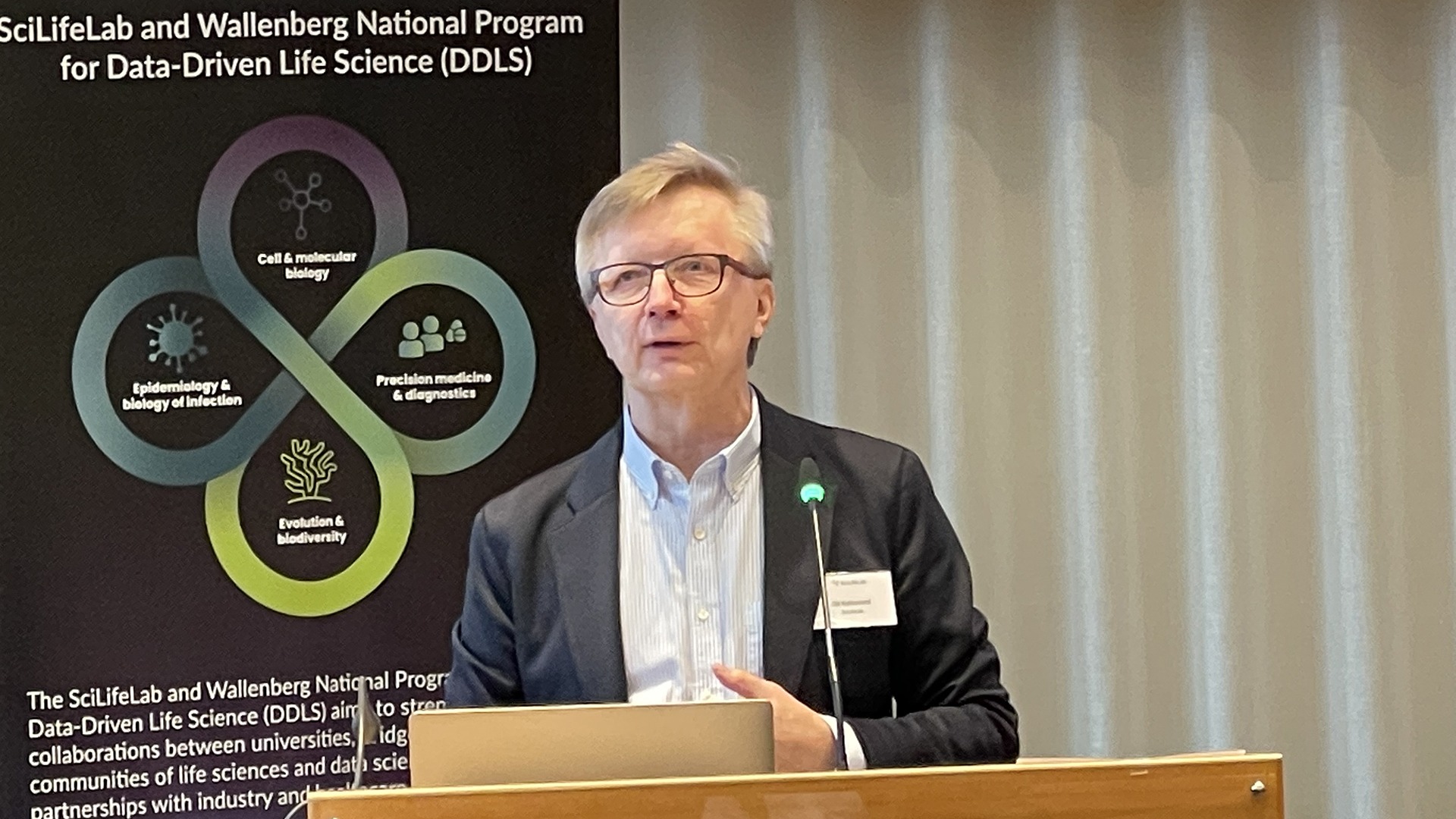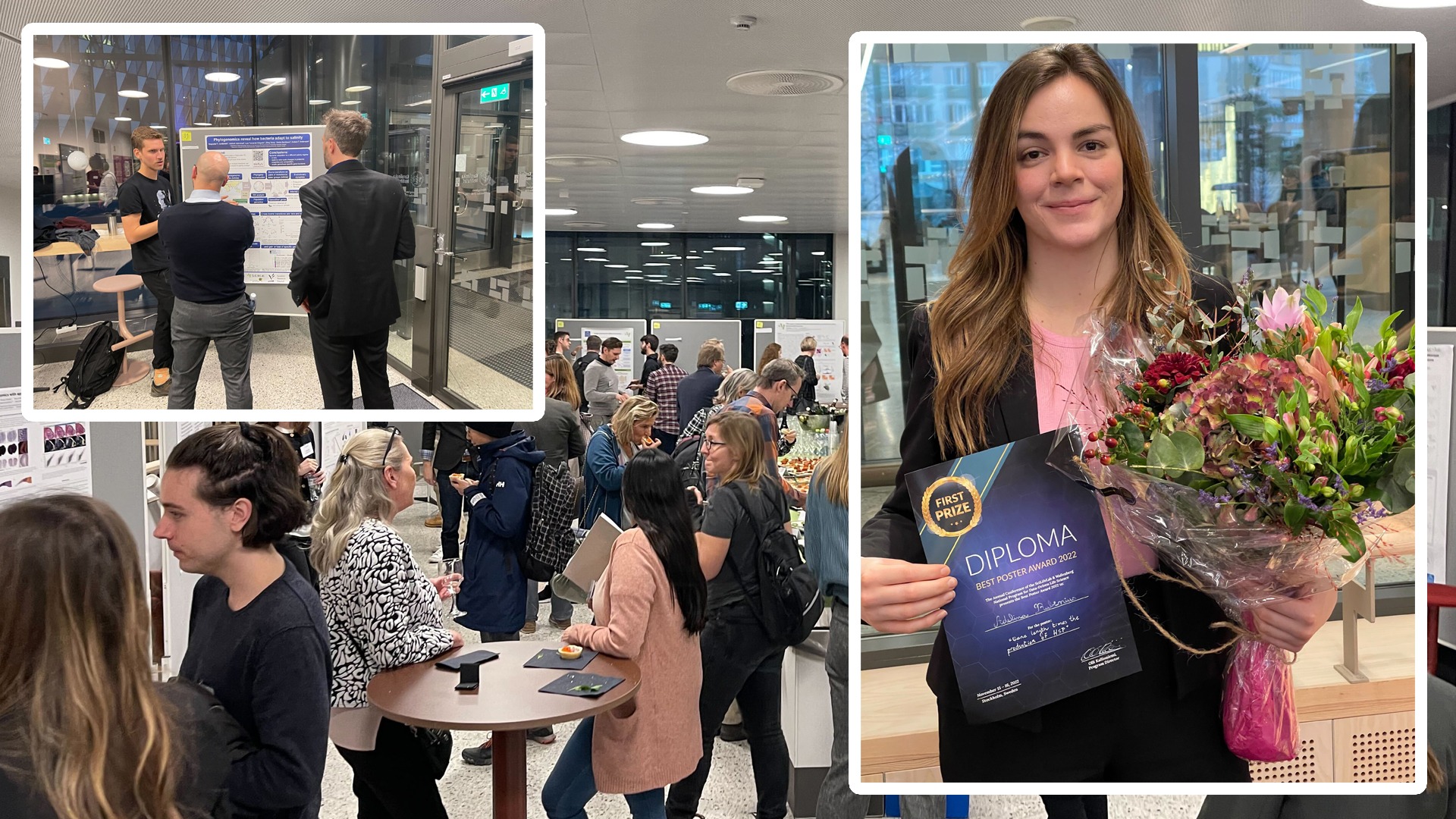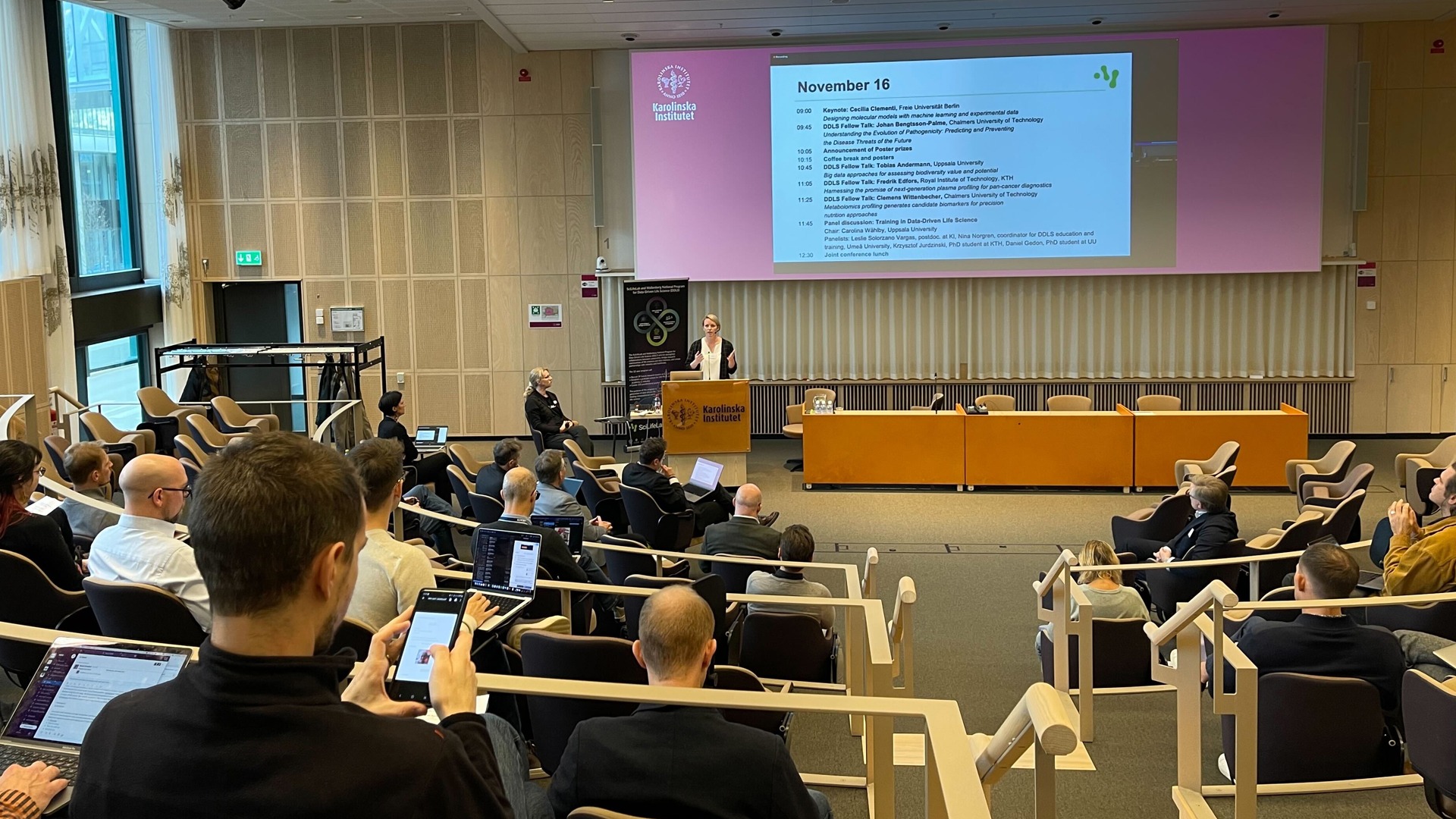First DDLS Annual Conference and poster session
More than 160 participants showed up to the first annual SciLifeLab and Wallenberg National Program for Data-Driven Life Science program (DDLS) conference, which was held in Biomedicum, Stockholm, on November 15-16. The event brought scientists from the data-driven life science and AI-community together and provided excellent networking opportunities across the research community and the SciLifeLab infrastructures. During the two-day event, the audience got to listen to international keynote speakers and presentations from some of the new DDLS Fellows, as well as participate in a poster session. The conference ended with a panel discussion about Training in Data Driven Life Science.
DDLS program and SciLifeLab Director Olli Kallioniemi opened the conference together with Tuuli Lappalainen, Director of the National genomics infrastructure (NGI), with a brief background about the DDLS program.

“It was exciting for all of us in the DDLS program to take part in the first DDLS research conference, where several of the DDLS fellows, i.e. young group leaders in data-driven life science participated and presented their ongoing research and future plans. Across the country, DDLS has so far recruited 16 fellows, with many more to come in the future years. We expect that this annual conference will grow significantly in size, as the DDLS fellows recruit PhD students and postdocs, as the data science nodes and the DDLS-WASP collaborative programs recruit staff, and as a variety of the programs start in 2023-2024, such as the DDLS research school, training activities and industrial collaborations. As it grows in size, the DDLS network will have a major positive impact on the future of life science in Sweden”, said Olli Kallioniemi.
As keynote speaker for the first day, Samuli Ripatti from the Institute for Molecular Medicine, University of Helsinki, gave an inspiring talk on Genetic variation and risk of common diseases over the life course. Cecilia Clementi from the Freie Universität, Berlin, held her interesting talk about Designing molecular models with machine learning and experimental data, on the second day of the event.
The audience also had the opportunity to listen to some of the new DDLS Fellows presenting their current and future research.
- Tom van der Valk, NMR, Environmental DNA in the genomic decade
- Johan Bengtsson-Palme, Chalmers, Understanding the Evolution of Pathogenicity: Predicting and Preventing the Disease Threats of the Future
- Laura Carroll, UmU, Metagenome mining approaches for novel virulence factor discovery
- Tobias Andermann, UU, Big data approaches for assessing biodiversity value and potential
- Fredrik Edfors, KTH, Harnessing the promise of next-generation plasma profiling for pan-cancer diagnostics
- Clemens Wittenbecher, Chalmers, Metabolomics profiling generates candidate biomarkers for precision nutrition approaches
Johan Rung, Head of the SciLifeLab Data Centre, also talked about the infrastructures for a data-driven life science Data centre, Berzelius, and the new Data Science Nodes.
At the end of the first day, the researchers behind the posters briefly presented their posters during a quick poster lightning talk, followed by the poster session. The winner of the “best poster award 2022”, Adelina Rabenius (KTH), was announced during day two, for her poster Gene length times the production of HSP.

“It is a great honor to receive this award! I am truly happy that my poster was recognized since I am very dedicated to effectively visualize my research, and communicate it to a broad audience. It is an exciting opportunity to reach out with our upcoming manuscript describing how gene length can time the production of heat-induced proteins. With this research, we would like to highlight a new dimension of the genetic regulatory information: how gene length can coordinate protein production”, she said about winning the award.
The DDLS annual Best Poster award is meant to encourage young scientists, including Ph.D. students, post-doctoral researchers. to submit high quality DDLS posters that can inspire the research community. The winner of the award, which was decided by a jury appointed by the scientific Committee, also received a diploma and a travel grant of up to 5 000 SEK.
The conference ended with a panel discussion about Training in Data-Driven Life Science, moderated by SciLifeLab researcher Carolina Wählby (Uppsala University). The panel consisted of Leslie Solorzano, postdoc from Karolinska Institutet, Krzysztof Jurdzinski, Ph.D. student from KTH, Daniel Gedon, Ph.D. from Uppsala University, and Nina Norgren, coordinator for DDLS education and training, Umeå University. The new DDLS Research School Director Marija Cvijovic (Chalmers/GU) also participated via zoom. The discussion circulated around the important question of how life scientists and data scientists can successfully transit towards the cross disciplinary area that is DDLS.
“The key to success is understanding the other side, having an open mind, and the desire to combine those things. We should not convert life scientists into data scientists and vice versa, or combine those in full, but rather exploit the capabilities and strengths that each side has, which then gives an added value”, said Marija Cvijovic.





